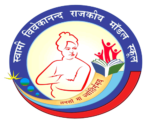Extracurricular activities play a pivotal role in a student’s holistic development, offering much more than just a break from academics. Whether it’s joining a sports team, participating in the school band, or engaging in community service projects, these activities provide invaluable opportunities for growth and learning outside the classroom.
- Building Social Skills: One of the most significant benefits of extracurricular activities is the opportunity for students to interact with their peers in a less structured environment. Through teamwork, cooperation, and communication, students learn essential social skills that are crucial for success in both their personal and professional lives.
- Developing Time Management: Balancing academics with extracurricular commitments teaches students the importance of effective time management. They learn to prioritize tasks, meet deadlines, and juggle multiple responsibilities, skills that are invaluable in adulthood.
- Enhancing Leadership Skills: Many extracurricular activities provide opportunities for students to take on leadership roles. Whether it’s captaining a sports team, leading a debate club, or organizing a fundraising event, students learn to lead by example, delegate tasks, and inspire their peers to achieve common goals.
- Exploring Passions and Interests: Extracurricular activities allow students to explore their interests beyond the confines of the academic curriculum. Whether it’s discovering a love for performing arts, developing a talent for coding, or nurturing a passion for environmental activism, these activities provide a platform for self-discovery and personal growth.
- Boosting Self-Confidence: Successes and failures in extracurricular pursuits help students build resilience and self-confidence. Whether it’s winning a debate competition, mastering a difficult piece of music, or overcoming setbacks in sports, students learn to believe in their abilities and persevere in the face of challenges.
- Promoting Healthy Lifestyles: Participation in sports and physical activities promotes physical fitness and overall well-being. It instills healthy habits early on, encouraging students to lead active lifestyles and prioritize their health throughout their lives.
- Fostering Civic Responsibility: Many extracurricular activities involve community service and volunteer work, fostering a sense of civic responsibility and empathy towards others. Through initiatives like environmental clean-ups, charity drives, and mentoring programs, students learn the importance of giving back to society and making a positive impact on their communities.
In conclusion, extracurricular activities are an integral part of a student’s educational experience, offering numerous benefits that extend far beyond the classroom. By providing opportunities for social interaction, skill development, self-discovery, and community engagement, these activities play a vital role in shaping well-rounded individuals who are prepared to thrive in the modern world.

